Episodes
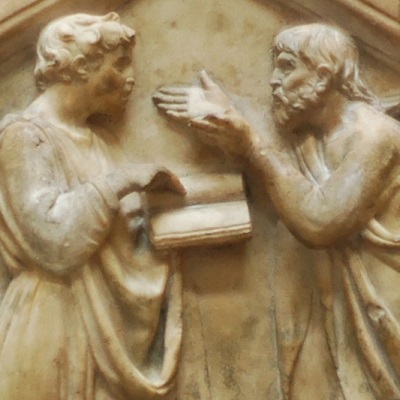
Tuesday Feb 13, 2018
Lecture: Is Reading Plato Necessary for Salvation? by Dr. Thaddeus Kozinski
Tuesday Feb 13, 2018
Tuesday Feb 13, 2018
Each year Wyoming Catholic College sponsors our Lecture Series for all students (attendance is required), faculty, staff, and our neighbors in Lander and beyond.
On February 2, The Feast of the Presentation, Dr. Thaddeus Kozinski, our Academic Dean and Associate Professor of Humanities and Philosophy delivered a lecture entitled, “Is Reading Plato Necessary for Salvation?” and we’re delighted to offer it to you in its entirety as an After Dinner Scholar podcast.
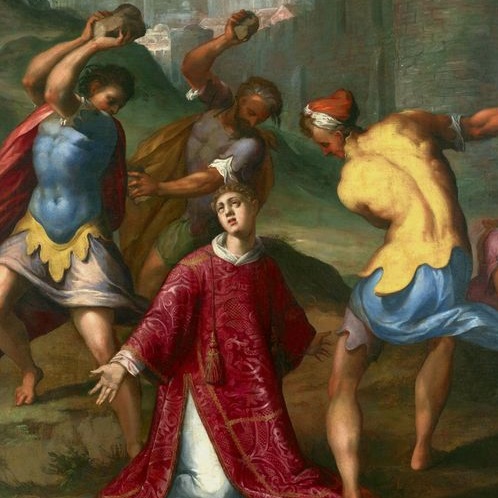
Tuesday Feb 06, 2018
To the Ends of the Earth: The Acts of the Apostles with Prof. Kyle Washut
Tuesday Feb 06, 2018
Tuesday Feb 06, 2018
“To many persons,” preached St. John Chrysostom, “this Book is so little known, both it and its author, that they are not even aware that there is such a book in existence. For this reason especially I have taken this narrative for my subject, that I may draw to it such as do not know it, and not let such a treasure as this remain hidden out of sight.”
The book to which St. John Chrysostom referred was the Acts of the Apostles, the second volume in St. Luke’s telling of the story of Jesus. “In the first book, O Theophilus,” Luke wrote, “I have dealt with all that Jesus began to do and teach.” In this second book, the Acts of the Apostles, Luke would deal with all Jesus through the Holy Spirit continued to do and teach.
Wyoming Catholic College Professor Kyle Washut has been teaching Acts to our freshmen this winter, sharing his insights and theirs with us on this installment of the After Dinner Scholar.

Tuesday Jan 16, 2018
Pope Paul VI, Humanae Vitae, and the March for Life with Dr. Jeremy Holmes
Tuesday Jan 16, 2018
Tuesday Jan 16, 2018
Forty-five years ago, on January 22, 1973, the U. S. Supreme Court decided the case Roe v. Wade thereby overturning all state laws and legalizing abortion on demand across the United States. Beginning the following January, a small group began what they called The National March for Life. Since then, the March has grown into a vast gathering on the Mall in Washington, DC and in cities across the country protesting the legalized murder of the innocents in their mothers’ wombs.
Rather than viewing abortion as an isolated issue, it’s important to remember that the desire for sex without the consequence of children is part of a much larger cultural crisis, a cultural crisis Pope Paul VI outlined in Humanae Vitae.
While Humanae Vitae is known as that encyclical about birth control, the issues it raises apply directly to abortion as well. Wyoming Catholic College theologian, Dr. Jeremy Holmes joins us this week to talk about the encyclical and its relationship to abortion.
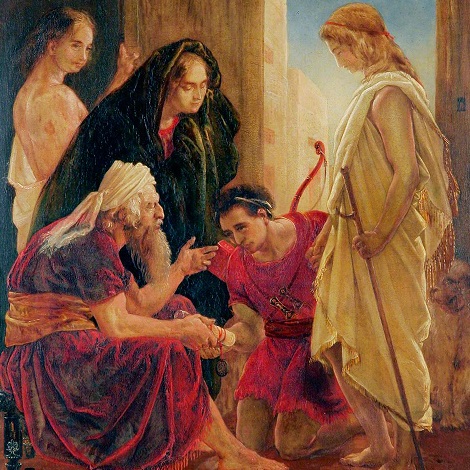
Tuesday Jan 09, 2018
Tuesday Jan 09, 2018
The story of Tobit takes place during the exile in Assyria. When Nebuchadnezzar’s Babylonian army took the people of Judah and Jerusalem into captivity, the people went with God’s promise of return. Two hundred years earlier, when the Assyrians captured Israel, that is, the Northern Kingdom, the people went into exile with no such promise or hope of returning. The so-called “ten lost tribes,” already thoroughly paganized in their religion, simply assimilated into Assyrian society.
But not Tobit. Though exiled, living in Nineveh, and working for the king, he had not apostatized like his fellow Israelites. He followed the Lord wholeheartedly and kept His commands carefully. Like Job he was brought low and like Job he finally saw his vindication.
Dr. Kent Lasnoski taught Tobit to Wyoming Catholic College freshmen during the fall semester.
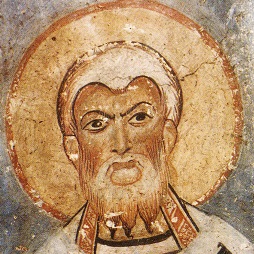
Tuesday Dec 05, 2017
Tuesday Dec 05, 2017
St. Athanasius was born in Alexandria, Egypt to Christian parents in about AD 298. From the time he was five until he was fourteen, he lived through the great and final persecution of Christians by Imperial Rome. As one scholar puts it, “All through the most impressionable years of his childhood he had not only learnt the Christian faith, he had seen it in action [in the lives of martyrs]. He had faced the possible of martyrdom himself; and he had made his own the faith for and by which the martyrs died….”
Athanasius, insofar as he is known at all, is remembered most for being the great polemicist who defended the Trinity and the deity of Christ against the wildly popular Arian heresy that denied both. Athanasius contra mundum, Athanasius against the world. Yet when he was a young man, before the advent of the theological controversy with the Arians, Athanasius wrote a delightful little catechetical book for his friend Macarius, On the Incarnation.
During this the first week of Advent, theologian Dr. Jeremy Holmes joins us to discuss that delightful and accessible book.
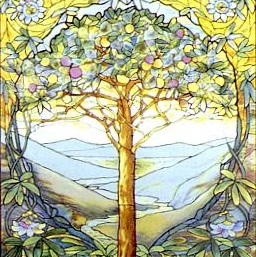
Tuesday Nov 14, 2017
What is the Soul?: Aristotle's de Anima with Dr. Michael Bolin
Tuesday Nov 14, 2017
Tuesday Nov 14, 2017
What does it mean to be alive? How does the life of a pine tree differ from the life of a puppy differ from the life of a person? What is it that we possess through life, but lose in death? Is it a soul? And if so, what exactly is a soul?
In De Anima, On the Soul, Aristotle explored these questions, questions that while seemingly abstract remain critical to many of our current debates. The definition of “to be alive” is central to questions of abortion and euthanasia and the way we understand the human body and the human soul inform what we think about sexuality and marriage.
Our guest this week, Wyoming Catholic College philosophy professor Dr. Michael Bolin, specializes in the work of Aristotle and St. Thomas Aquinas. He is currently teaching De Anima to Wyoming Catholic College sophomores.
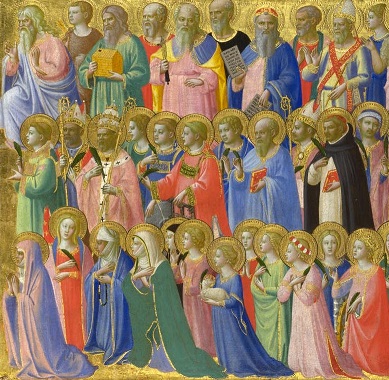
Tuesday Oct 31, 2017
Lumen Gentium for All Saints' Day with Professor Kyle Washut
Tuesday Oct 31, 2017
Tuesday Oct 31, 2017
“The saints have no need of honour from us,” preached St. Bernard, “neither does our devotion add the slightest thing to what is theirs. Clearly, if we venerate their memory, it serves us, not them. But I tell you, when I think of them, I feel myself inflamed by a tremendous yearning.”
Each year on November 1, we celebrate the Solemnity of All Saints, remembering those brothers and sisters in Christ who lives demonstrated heroic virtue and faith. Perhaps by happy providence, perhaps by professorial cunning, Wyoming Catholic College professor Kyle Washut is teaching the Vatican II document Lumen Gentium to our seniors coming to chapter seven, “The Eschatological Nature of the Pilgrim Church and Its Union with the Church in Heaven” just in time for All Saints Day. Professor Washut is our guest this week to share what he and his students have been discussing.
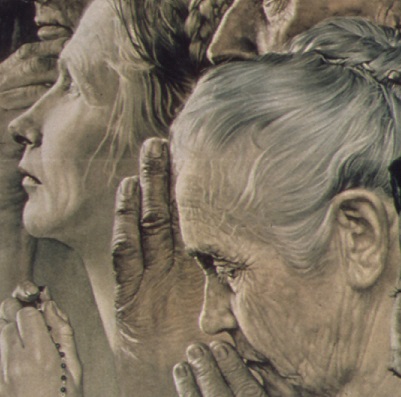
Tuesday Aug 29, 2017
Religious Liberty in America with Dr. James Tonkowich
Tuesday Aug 29, 2017
Tuesday Aug 29, 2017
The great American experiment in religious liberty expressed in the words of the First Amendment to the Constitution was unprecedented in the eighteenth century, remains rare in the world today, and is under attack even in spite of the Constitution and the Western intellectual tradition that informed the Constitution.
Dr. James Tonkowich discusses religious liberty and introduces the free Wyoming Catholic College distance learning course "Religious Liberty in America."
To request your copy of the lectures, study guide, and Dr. Tonkowich's book The Liberty Threat, fill in your name and mailing address here.
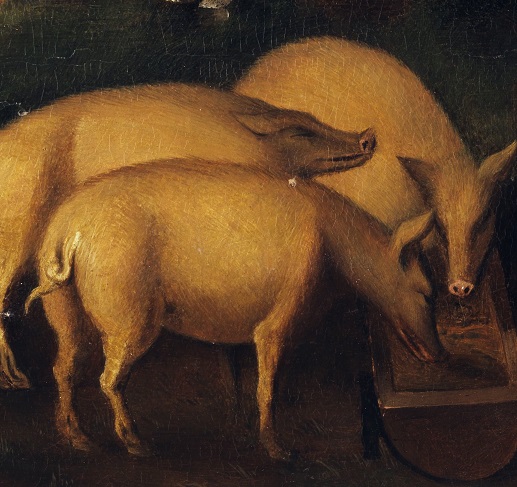
Tuesday Aug 15, 2017
Flannery O’Connor and the Warthog from Hell with Dr. Kent Lasnoski
Tuesday Aug 15, 2017
Tuesday Aug 15, 2017
Anyone who has read Flannery O’Connor’s stories knows that she was convinced that "the repugnant distortions of modern life" appeared far too natural and normal to her audience and she was quite willing to use “ever more violent means” to point that out.
Her short story “Revelation” exemplifies her dictum that “to the hard of hearing you shout, and for the almost blind you draw large and startling figures.”
This summer Dr. Kent Lasnoski assigned “Revelation” to high school juniors and seniors during Wyoming Catholic College’s PEAK Program. Dr. Lasnoski is our guest on this edition of The After Dinner Scholar.
Links:
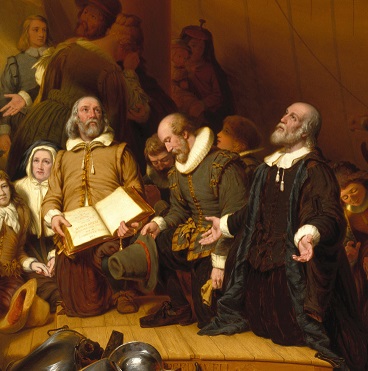
Tuesday Aug 01, 2017
Lecture: The Exodus and America by Dr. Virginia Arbery
Tuesday Aug 01, 2017
Tuesday Aug 01, 2017
That imagery of the Exodus goes far beyond Moses leading the people of Israel in about 1446 BC. It was alive and well on the shores of New England in 1630 and remains with us today as what Wyoming Catholic College professor Dr. Virginia Arbery calls “the root of American self-understanding.”
Dr. Arbery spoke about the New England Puritans and the imagery of the Exodus at the Wyoming School of Catholic Thought this past June. Here is her lecture in its entirety.
The documents Dr. Arbery cites in her lecture are: The Mayflower Compact, "A Model of Christian Charity" by Governor John Winthrop and The Life of William Bradford and The Life of John Winthrop both from Cotton Mather's Magnalia Christi Americana

